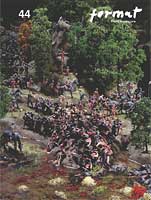Ekonomia daru" zamiast „ekonomii wymiany"
The Economy of Gift instead of the Economy of Exchange. On Arthur Żmijewski’s Films
Author(s): Ewa ToniakSubject(s): Theatre, Dance, Performing Arts
Published by: Akademia Sztuk Pięknych im. Eugeniusza Gepperta we Wrocławiu
Keywords: Arthur Żmijewski; ancient problem of the human transgression
Summary/Abstract: Żmijewski entitled his recent film “An Eye for an Eye”. He filmed disabled together people with healthy people. Maria Janion wrote about his film that ¯mijewski was “radically different and grotesque”. The artist shows the dangerous and unexplainable reality. His films suggest that the world cannot be repaired with words. Zmijewski mostly photographed men. There is no “manly exchange” in his pictures, but, rather, there only is “feminine gift”. Women don’t hug men, they support them. The rhetoric of his pictures is based on the idea of absence. There are shown, for example, four arms, three heads, and three legs in one picture. The bodies aren’t complete, and they seem to be waiting, in suspense, for completion. Naked models are shown in abstract space. They look as if they were temporarily present. The artist suggests that they should be changed. He wants, though, to change the very idea of exchange. He wants to replace it with the idea of giving without taking anything in return. The narrative of the film includes a few stories. A naked, one-legged man is walking up-stairs, followed by two-legged man. After a while, they return, walking downstairs, and go for a walk in the fields. The second part of the movie shows a woman assisting a disabled man in bathing. She is bathing with him. A man is without fingers and his legs are cut below knees. At the end of the movie we only can see a “complete” body of a woman. A “complete”, healthy body is transcendental and static. It includes a person. A grotesque, crippled body is not static. It is open, and different. Zmijewski illustrates an ancient problem of the human transgression.
Journal: Format - Pismo artystyczne
- Issue Year: 44/2004
- Issue No: 01+02
- Page Range: 54-57
- Page Count: 3
- Language: Polish

